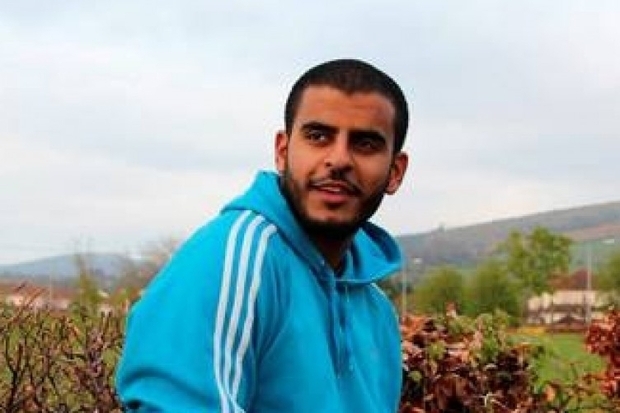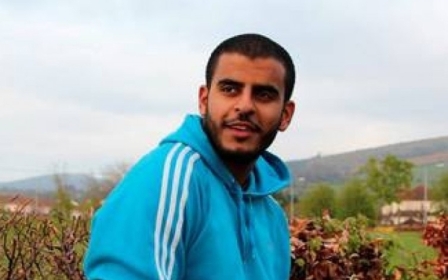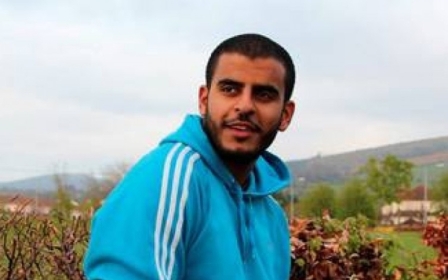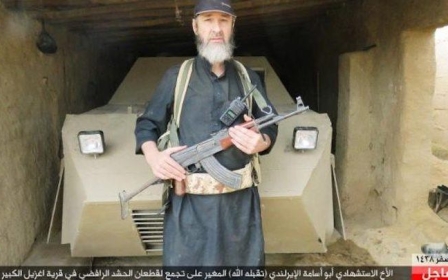Egypt drags heels on releasing Irish citizen cleared of all charges

Irish citizen Ibrahim Halawa, who was acquitted of terrorism charges on 18 September after spending four years in jail in Egypt, is still in police custody.
Although he was meant to have been released and sent back to Ireland, he remains languishing in jail with his family and lawyers saying that the Egyptian legal authorities has not yet begun to process the paperwork for his release from jail.
“We don’t have any updates about the paperwork other than it's been delayed," Halawa’s sister Fatima told Middle East Eye.
"When he’ll be released is ultimately dependent on when the Egyptian government decides to proceed with the release process.”
'We don’t have any updates about the paperwork other than it's been delayed;
- Fatima Halawa
It has now been three weeks since an Egyptian court found Halawa not guilty of all charges after he was picked up by Egyptian police aged 17 in 2013 along with his three sisters during protests against the army's overthrow of president Mohamed Morsi.
According to Amnesty International’s Egypt researcher Mohamed Ahmed, “The first stage hasn’t even been done,” he told The Irish Times, after he received an update from Halawa’s legal team in Egypt.
Halawa’s Egyptian lawyer has told Amnesty that the Cairo criminal court has yet to inform the public prosecutor and attorney general of the acquittal.
Sinn Fein MEP Lynn Boylan, who is in regular contact with Halawa’s Belfast-based lawyer, Darragh Mackin, told the newspaper: “He doesn’t have any more information and is getting concerned himself,” she said.
The Irish government has repeatedly called for Halawa's release since his arrest.
'The first stage hasn’t even been done'
- Mohamed Ahmed, Amnesty's Egypt researcher
Describing the Halawa family as “frustrated and extremely on edge”, Fatima said that their older sister Nusaiba had travelled two weeks ago to Egypt “so that Ibrahim can be met with a familiar face once he’s released”.
“We thought they’d be back by now but it’s but every week it's another let down for us,” explained Fatima adding that their sister had left behind a nine-month old baby in order to be in Egypt to support their brother.
Long delay
According to Brad Youngblood, head legal and political researcher at the Tahrir Institute for Middle East Policy, a Washington-based think tank, “The odds that the delayed release is due to the paperwork and bureaucracy surrounding the implementation of court orders in Egypt are very low,” he told the Irish Times.
“Given the politicisation of the court case of which Halawa was a defendant and the uncommonly long amount of time that has already passed, it is not unlikely that the elements of the judiciary or the security services have actively worked to delay his release,” he warned.
The Irish Department of Foreign Affairs and Trade would not confirm whether Irish Embassy officials in Cairo have been able to see Halawa since he his acquittal, local reports have suggested.
'Given the politicisation of the court case ...it is not unlikely that the elements of the judiciary or the security services have actively worked to delay his release'
- Brad Youngblood, Tahrir Institute
Halawa was kept in solitary confinement with no light or toilet for long periods. His family said he was beaten and denied medical treatment for a gunshot wound to a hand he suffered shortly before his arrest.
He had staged a number of hunger strikes to force the hand of Egyptian authorities and draw attention to his case.
But his most recent strike, which ended earlier this year, caused a sharp deterioration in his health and meant he had to use a wheelchair.
Earlier this year, an American-Egyptian aid worker Aya Hijazi was released from a Cairo prison just days after being acquitted on charges linked to a shelter for street children she ran in Egypt.
Middle East Eye propose une couverture et une analyse indépendantes et incomparables du Moyen-Orient, de l’Afrique du Nord et d’autres régions du monde. Pour en savoir plus sur la reprise de ce contenu et les frais qui s’appliquent, veuillez remplir ce formulaire [en anglais]. Pour en savoir plus sur MEE, cliquez ici [en anglais].




